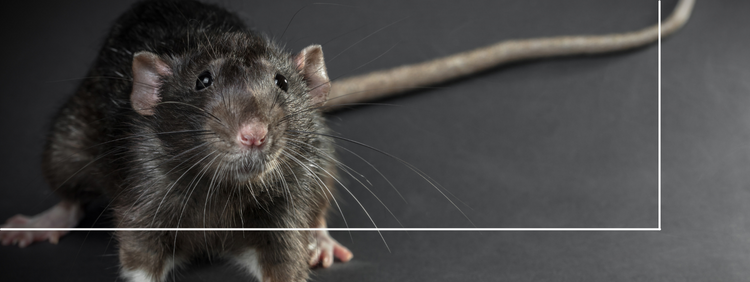 Rats are common all across Canada. The furry rodents look cute to some people but do not touch or pick up the animal. Rats are carriers of several diseases, so keeping your distance is best. If you spot a rat on your property, call a rodent removal service. Attempting DIY mitigation techniques can cause an animal bite, which is potentially problematic.
Rats can administer powerful and painful bites when threatened. The animal's large teeth ensure injury. Healthy rats often stay in hiding until houses or buildings are quiet, meaning interactions with people are rare. Unfortunately, if you come across a rat that feels cornered, it will defend itself.
Depending on the attack, a bite might be deep or shallow, and you might see multiple abrasions or a single puncture wound. While rare, infections can occur, so washing and disinfecting the wound is vital, as is receiving medical attention.
Despite the myth, there are no reported cases of rabies transmission from rat bites. However, animal control specialists warn rats can carry several other bacteria, which can lead to disease and infection.
Rats are common all across Canada. The furry rodents look cute to some people but do not touch or pick up the animal. Rats are carriers of several diseases, so keeping your distance is best. If you spot a rat on your property, call a rodent removal service. Attempting DIY mitigation techniques can cause an animal bite, which is potentially problematic.
Rats can administer powerful and painful bites when threatened. The animal's large teeth ensure injury. Healthy rats often stay in hiding until houses or buildings are quiet, meaning interactions with people are rare. Unfortunately, if you come across a rat that feels cornered, it will defend itself.
Depending on the attack, a bite might be deep or shallow, and you might see multiple abrasions or a single puncture wound. While rare, infections can occur, so washing and disinfecting the wound is vital, as is receiving medical attention.
Despite the myth, there are no reported cases of rabies transmission from rat bites. However, animal control specialists warn rats can carry several other bacteria, which can lead to disease and infection.
1. Hantavirus
Rats can transmit the hantavirus, but only specific types in North America — the rice rat and the cotton rat. The rats may carry the disease in their saliva, so it gets transmitted into the wound when they bite you. Hantaviruses include a family of illnesses spread primarily through the rodent population. If infected, a human can get pulmonary syndrome, a rare infection that can cause life-threatening heart and lung problems.2. Leptospirosis
Like the hantavirus, leptospirosis also travels from a rat's saliva into a bite; however, people catch it more often from drinking contaminated fresh water. Leptospirosis affects animals and humans, and it is a bacterial disease. The condition is often confused with other diseases as symptoms are not specific. Left untreated, leptospirosis can cause several life-threatening conditions. Medical professionals warn the illness can lead to kidney damage, liver failure, meningitis, respiratory distress, and potential death.3. Tetanus
Rat bites can evolve into serious infections, including tetanus. The condition affects the nervous system, causing muscle contractions, specifically in the neck and jaw muscles. If you haven't received a tetanus shot in recent years, you may consider getting one after a rat bat. Doctors stress there is no cure for tetanus, and the symptoms may be life-threatening or temporary.4. Rat-Bite Fever
Rats may carry a specific bacteria known to cause rat-bite fever (RBF). There are two forms of RBF: streptobacillary RBF and spirillary RBF. Streptobacillary bites will often heal quickly, but you may experience symptoms within three to ten days. The symptoms include:- Headache
- Joint and muscle pain
- Skin rash
- Vomiting
- Diarrhea
- Fever and chills
- Sore throat
- Ulcer at the wound
- Swelling of the lymph nodes

